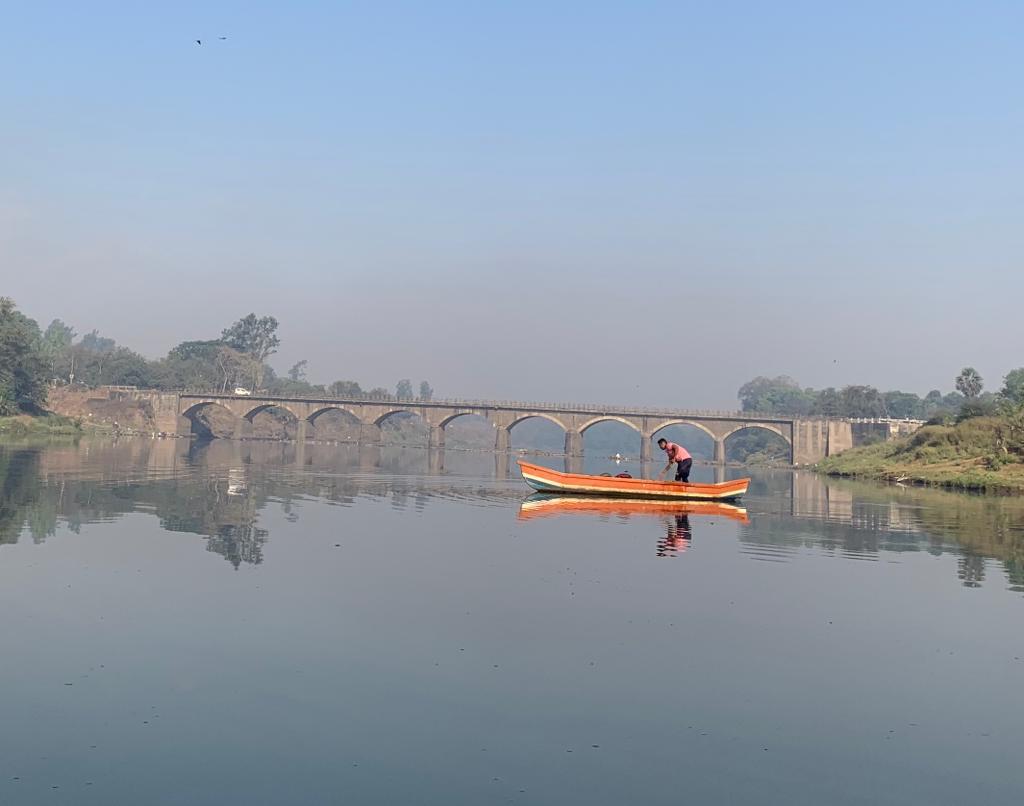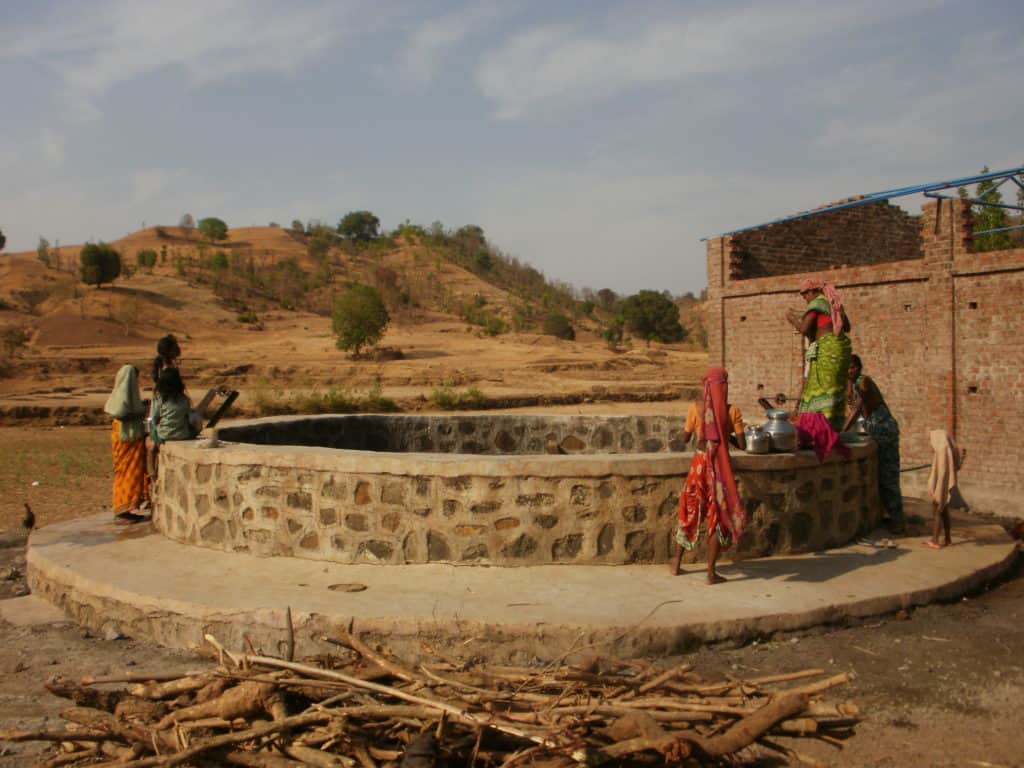Historically, civilizations grew around rivers in their valleys (i.e. Nile and Indus valleys). It is relatively very recent in human history that we now dwell and thrive in spaces that are far away from rivers or other water bodies.
I (Deepak) have read earlier that the city of Mumbai, with its population of 20 million people, draws its water requirement from large reservoirs and rivers that are more than a 100 km away from downtown city.
Ironically, the native population living around these reservoirs have been restricted access to these bodies of water that are present in their communities.
The future depends on what you do today.
Mahatma Gandhi

Threat to water bodies
Increasingly, these rivers are becoming polluted. A lot of industries, which stem out of urban areas, and are operated by our fellow citizens, release untreated or under-treated waste into these waters. In addition, the local people often discard ritualistic offerings or domestic refuse into these rivers. Our rivers, which have been sources, and symbols, of life for thousands of years, are now being destroyed. They are becoming another innocent bystander of modernity.
Re-imagining water
My re-imagination is that the general population (in India and elsewhere!) get sensitized to the fact that water is life. An ancient belief system regarded the river as a mother, alluding to its life-giving and life-sustaining capabilities. With this reality in mind, we are killing our mother!
What if we start caring for and nurturing our rivers? What would it require to conserve and restore rivers? Strengthening the solid waste management setup around us can further reduce the negative impact on aquatic life. I envision that active community engagement models like Jal Biradari (translates to Water-Commune) will flourish glocally as we earnestly restore our relationship to rivers.
Read more: Delhi Report Card 3: Enough ‘free lifeline water’ for all, but quality and impact under scanner
An American perspective
Growing up in a small city in Upstate New York, I (Dan) did not have much of a relationship with water bodies during my childhood. We have a water reservoir in our city, as well as a marsh, both of which I know very little about. The water reservoir is fenced off. Considering how important water is to my daily life, it perplexes me how I know so little about where it is sourced and what it is treated with! My guess would be that I am not alone in being uninformed and disconnected to the source of water.
Urban habits in rural India
While living in the desert, in rural India, water was precious. Most of the local residents, in the community I lived in, still fetched their water from handpumps that connected to bore wells. Every drop was cherished.
As the people from the cities came into this village, so did indoor running water, increased air conditioners and technological innovation. The water table could not sustain the increased demands, and soon water shortages came, and water had to be trucked in from neighboring villages.

Water is indispensable
Water is in everything we do. The cotton to grow our clothes is dependent on water. The wood for our houses, machines to make our technology. Water is one of the key ingredients for growing our vegetables, and the crops that feed the animals that we consume. And, with increased consumption, Water scarcity is becoming increasingly widespread around the world.
Earth provides enough to satisfy every man’s needs, but not every man’s greed.
Mahatma Gandhi
Humility with water
Humility is a trait that is found in most all spiritual traditions. A simple definition is “limiting oneself to an appropriate amount of space while leaving room for others”. [Source: The Mussar Torah Commentary]
With water in mind, are we, humans, acting with humility? Perhaps this question is more pertinent to those of us in urbanized, highly technological, localities?
What if we were to bring increased humility into our relationship with water? What if we were to consume less, so others, across space and in coming generations, could simply have the chance to greet the source of life, and ultimately to live?
This article was first published in Reimagining our Future and is republished after minor edits with the permission of the authors.
Also read: